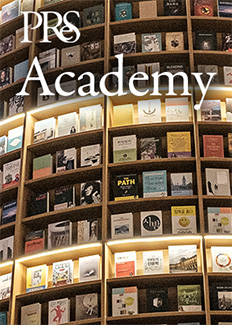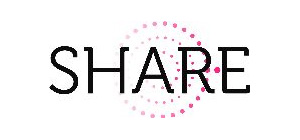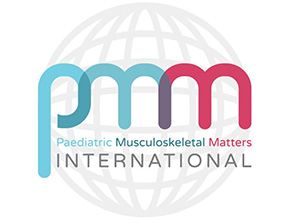Application Deadline: April 15, 2024
The purpose of this funding mechanism is to support collaborative research activities between CARRA and PReS early career investigators. Early career investigators are defined as faculty (not fellows) who completed their training/education in the past 10 years. Grant funds may be used to convene meetings, generate preliminary data and/or support collaborative pilot studies. The goal of this funding mechanism is to provide seed funding that allows CARRA and PreS investigators to successfully plan and apply for other grants that could support large-scale collaborative research activities.
Grant applications should show how the applicants will leverage the infrastructure of CARRA and PReS, address priority research topics for both communities, engage patients and extend expertise that would otherwise not be possible working with either group alone.
Funding Amount: €50,000 EUR or USD equivalent
Application Deadline: April 15, 2024
Funding/Project Period: Begins August 1, 2024 – Ends July 30, 2026
Grant Availability: 1 award
Eligibility
- The application must name two co-PIs, one current CARRA member from North America and one current PReS member from outside North America.
- To be eligible, MD applicants must also be faculty.
- Applicants must be CARRA or PReS members who are up to date on membership dues and have current and accurate membership information (location, contact information, and membership status)
Grant Application Materials:
- Project Summary/Abstract (300 words max)
- Lay Summary (150 words max)
- Specific Aims (1-page limit)
- Project Timeline (3-page limit)
- Research Plan - Plan should include any plans/goals for larger initiative and potential future funding mechanisms. (can be uploaded to PC as one document)
- Background
Describe/Include the following:
- Establish current status of the field/significance of problem
- Describe the rationale for conducting this project through a CARRA-PReS collaboration
- Indicate how project will advance knowledge in the field
- Discuss prior work, if applicable.
- Impact and Significance
Describe impact and wider implications of project. Specifically discuss address the following:
- How does this project leverage the CARRA-PreS collaboration?
- How does this project positively impact the pediatric rheumatology scientific community?
- How will this project advance both organizations missions?
- Methods/Activities
Describe the proposed activities and deliverables, including the following if applicable:
- Study population
- Study design
- Sample size
- Study sites
- Study schedule
- Primary and secondary outcomes
- Thoroughly describe the project activities and feasibility
- Methods for solving the problem and possible pitfalls
- Timeline for the project activities and deliverables
- Analysis and Statistical Plan
Describe/Include the following:
- Qualitative and quantitative analysis plan for project
- Provide justification for sample size if appropriate
- Environment
Describe/Include the following:
- Scientific environment
- Institutional support
- Physical and other resources available to complete the project
- Dissemination & Data Sharing Plan
Describe/Include the following:
- Present a plan for sharing results of project through a variety of mediums
- Describe how/when data sets will be shared with CARRA and PreS to be available for future research
- Sustainability Plan
- Describe your plan for continuing the project beyond the period of award and future funding plans. Describe how this project will be used to apply for future funding opportunities.
- References (no page limit)
- Budget Table
- All Principal Investigators (PI) are required to dedicate effort on their projects which must be noted on the budget table. Requesting salary support is optional. For budgets that include investigator salary/effort, a letter of support is required from the division chief of the applicant must be submitted documenting that the % effort is available and confirming investigator salary. If the PI is the division chief, a letter from the Department Chairperson is required.
- Budgets may not include travel to present abstracts.
- Publication, poster printing, and presentation costs are not allowed.
- Travel expense requests are not permitted unless required for the project. Travel expenses to attend meetings to present this work, for example, are not allowed.
- Up to 8% F&A (indirect/overhead) can be requested, and this must be incorporated into the project budget.
- Applicants should aim to allocate approximately one-half of the budget for CARRA member expenses and one-half of the budget for PReS member expenses or justify why this is not possible.
- Please review CARRA’s statement of direct and indirect support.
- Budget Justification
- The budget justification provided must indicate how funds are to be allocated for each year
- NIH-formatted Biosketches for all Principal Investigator(s), Co-Principal Investigator(s), and all Co-Investigator(s) (limit 5 pages per biosketch; please combine all biosketches into one PDF with the PI(s) biosketch listed first.)
- Letters of Support
- Required for budgets that include investigator salary/effort. A letter of support from the division chief of the applicant must be submitted documenting that the % effort is available and confirming investigator salary. If the PI is the division chief, a letter from the Department Chairperson is required.
- Letters of support from collaborators are required.
- Letters of support from mentors and institution(s) are highly recommended.
- Applications proposing the collection of any new data or biosamples via the CARRA Registry and/or via CARRA sites must obtain and include a letter of support (LOS) from CARRA's Research and Registry Oversight Committee (RROC).
- Research Assurances
- Submit documentation of an Institutional Review Board (IRB) review, if applicable. Funds will not be released until either 1) IRB approval letter or 2) IRB waiver/documentation that IRB has determined your project is exempt from IRB review is received.
- Appendix (limit 1 attachment)
Review the detailed application checklist prior to submission. Applicants must use the templates provided when submitting their final applications. CARRA Staff is available to assist with the application process and to answer questions. Contact us by emailing grants@carragroup.org or Info-PReS@wearemci.com
APPLICATIONS NOT FOLLOWING THESE INSTRUCTIONS WILL NOT BE CONSIDERED
Important Information for CARRA-PReS Collaborative Research Award Submissions
Read the CARRA-PreS Collaborative Research Award instructions carefully. Be sure to be compliant with formatting instructions and page limits. Use of the document templates provided above is REQUIRED. Submit your completed CARRA-PreS Collaborative Research Award application via the online application.
- Data and sample request deadline: March 1, 2024.
- Application deadline for the CARRA-PReS Grant: April 15, 2024.
- Applicants will be notified of funding decisions in July 2024.
- Funds will be provided to the awardee’s institutions to be used by the principal investigator’s according to the project budget. CARRA and PReS will arrange to provide funds to their respective members’ institutions.
- Awardees are expected to submit an abstract(s) and ensure that the work is presented annually at the CARRA and PReS Annual Meeting(s) until the project is complete.
- For projects requesting budget support to cover Registry and Biorepository costs, requested funds will be held by CARRA and paid directly to DCRI.
- If the PI is unable to complete the project, any unexpended balance must be returned to CARRA.
- Awardees are expected to submit an abstract and attend the CARRA Annual Meeting(s) until the project is complete/final results have been presented.
- If the project is not completed within the project period, the award recipient may request a no-cost extension (NCE) for up to 12 months. Requests for NCEs can be made up to 90 days prior, but no less than 30 days prior, to the project period end date. An interim progress report must be submitted with the NCE Request Form, both of which are available on the CARRA website.
- Awardees must submit a final progress report no later than 45 days after the project period end date.
- Timely provision of progress reports is required to be eligible for future CARRA-Arthritis Foundation grants.
- All awardees of CARRA-Arthritis Foundation funding must abide by the procedures outlined in the to the current CARRA Publications and Presentation Guidelines when presenting/publishing findings from their projects. This includes submitting all abstracts and manuscripts to the CARRA Publications Committee for approval prior to submission and acknowledging the support of CARRA and the Arthritis Foundation by including the following language: “The authors wish to acknowledge CARRA, and the ongoing Arthritis Foundation financial support of CARRA.”
IMPORTANT UPDATE FOR APPLICANTS USING CARRA REGISTRY DATA/BIOSAMPLES
Grant applicants that intend to utilize the CARRA Registry or CARRA-related data and/or biosamples (including Legacy Registry and APPLE data/samples) must receive approval from the CARRA Data Sample Share Committee (DSSC) prior to submitting their grant applications. Applicants will be required to provide documentation of DSSC approval. The request must match the intended use outlined in the grant proposal. Failure to receive approval of the data and/or sample request prior to submission of the grant application will result in the administrative decline of the application.
Data/sample requests take 4-6 weeks for review and approval. For more information on requesting data/samples and to access the request form, please visit the CARRA Data and Samples Request area of the wiki.
Applicants that have questions or need additional information can contact grants@carragroup.org for assistance.
If the application proposes collection of any new data or biosamples via the CARRA Registry/Biorepository and/or via CARRA sites, the applicant must include a letter of support (LOS) from CARRA's Research and Registry Oversight Committee (RROC), as there are logistic and monetary considerations that may impact the feasibility of the proposed project. Please submit a formal request form to CARRA with your specific aims and draft language for the LOS. Please provide as much detail as possible to expedite the review process. CARRA may also request to schedule a call to discuss your application if necessary.
Email grants@carragroup.org with any questions.
Email Info-PReS@wearemci.com with any questions.
Contact persons:
- PReS Council – Tadej Avcin
- PReS Research Committee Chair - Fabrizio De Benedetti
- PReS Working Parties 2.0 Chair - Sylvia Kamphuis
RESULT OF THE 2023 CALL FOR APPLICATIONS
Title: IDENTIFYING CROSS-REGISTRY COMMONALITIES TO FACILITATE INTERNATIONAL PEDIATRIC ANTIPHOSPHOLIPID SYNDROME RESEARCH
Lay Summary: Patients with antiphospholipid syndrome (APS) experience blood clots or pregnancy related problems in the presence of persistently elevated levels of antiphospholipid antibodies. The disease is rare in childhood, and much of our knowledge comes from the Ped-APS Registry, which showed significant differences between pediatric and adult APS. The classification of APS for research purposes is based on the revised Sapporo criteria, which were developed for adult patients and have not been validated in children. Furthermore, the development of new APS classification criteria for adult APS patients were recently completed. Given the differences in pediatric versus adult APS patients, the aim of this project is to further characterize pediatric APS by selecting the most relevant clinical, laboratory, and treatment data to capture the full picture of the syndrome in the pediatric population.
Co-PI: Selcan Demir, MD, MSc Co-PI: Elisabeth Sloan, MD
Co-PI: Mojca Zajc Avramovic MD, PhD Co-PI: Jheel Pandya, MD
Collaborators: Tadej Avcin, Seza Ozen, Doruk Erkan, Karen Onel




